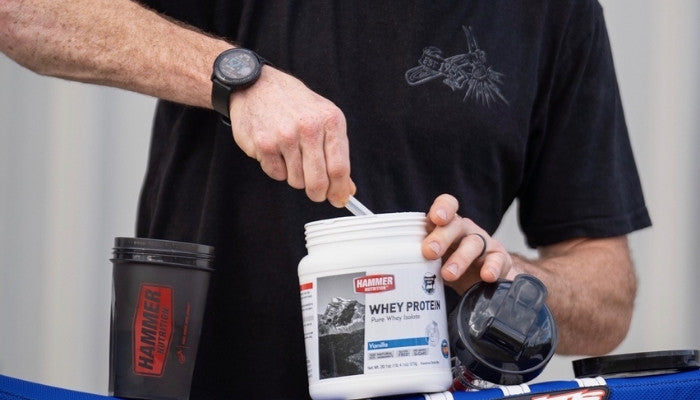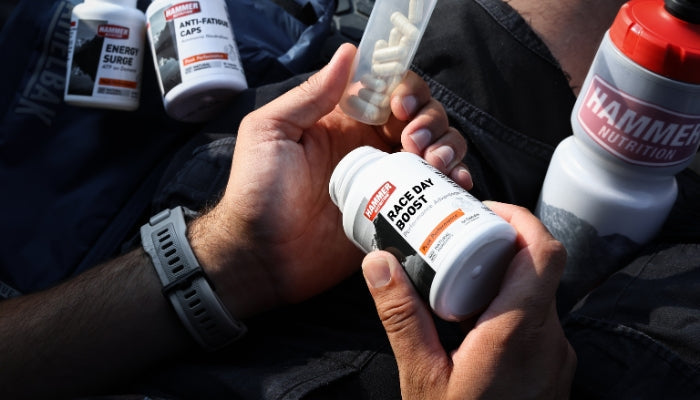In case we have not stated it obviously or frequently enough, here is our platform, which you can expect us to consistently speak from in this website and elsewhere:
Daily Diet - Eat whole (organic) foods as much as possible. Avoid packaged, processed foods and junk foods at all times. Do not consume any artificial sweeteners, colors, or flavors, and avoid preservatives as much as possible. The quality of the calories you consume ALWAYS matters.
Sugar Bad - Avoid all "ose" (sucrose, fructose, glucose, etc.) highly processed sugars in your daily diet and especially during exercise. These sugars are not only inefficient fuels, they're health hazards as well.
Protein - It's not just for strength athletes; it's vitally important for endurance athletes as well. Consume 1/2 gram of protein per pound of bodyweight daily as a minimum. Increase to 3/4 gram/pound of bodyweight daily during periods of high volume endurance training and/or when wanting to increase lean muscle mass. When your exercise extends well beyond two hours, soy protein should be included in your fuel.
The "balanced diet" myth/the necessity of prudent supplementation - How many of you take no supplements because you believe you eat a "balanced diet?" Did you know that there has never been a single clinical study that documents what comprises a balanced diet, nor one that has demonstrated one's ability to meet basic nutrient requirements through whole foods alone? That's because it is not possible. Thus, our position that prudent supplementation is essential for optimum performance and health.
Fueling during exercise - Replace what you can effectively assimilate, not what you lose, with limited, measured fluids, complex carbs, moderate sodium and other electrolytes, and soy protein when exercising beyond two hours. Also avoid products that contain "ose" highly processed sugars, artificial sweeteners, colors or flavors.
It looks like high sodium intake, both in the daily diet and while exercising, is going to have to be added to our educational efforts and to the above "platform." This is rather odd to me, since it seemed like everyone, (holistic and allopathic communities) have agreed for the past 20 years, or more, that high sodium intake is bad for your health. Unfortunately, many "experts" have decided that high sodium intake is good for you if you are an endurance athlete and exercise in the heat.
Show me an athlete with salt crust on their skin and clothing and I'll show you an athlete that consumes a high sodium diet. The more you eat, the more you will excrete; it really is that simple. However, some companies are now touting the high sodium content in their gels and sports drinks as a key feature. We even have clients asking us why we don't put more sodium in our products.
High sodium intake is not only contrary to optimal health but it contravenes normal body mechanisms that regulate sodium excretion and re-circulation during exercise. This is why we have always advocated a low sodium diet and moderate sodium intake during exercise. Many articles in previous issues of Endurance News, as well as those on our website, have clearly and convincingly made the case for a low sodium diet. I encourage you to read those as well as Steve's most recent article in this issue. That way, the next time someone tells you that more sodium is better, you'll know otherwise.










